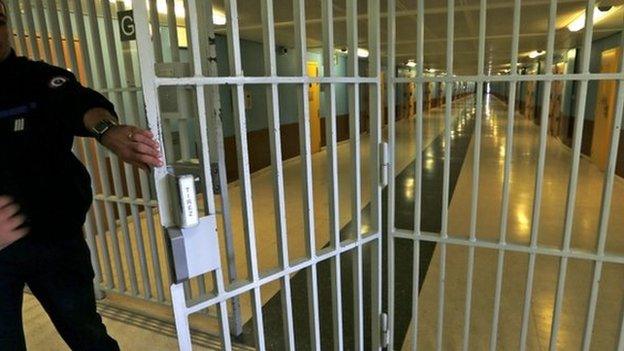Eiffel Tower perimeter fence built to stop terrorism
- Published
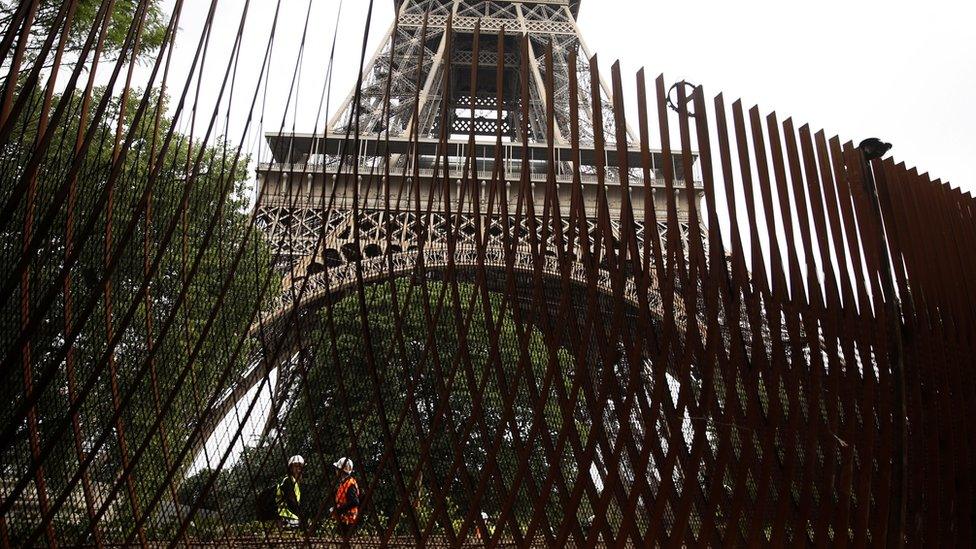
The iconic tower will be surrounded by high walls and bulletproof glass
Paris is to unveil its newly built perimeter defences around the Eiffel Tower to protect against terror threats.
Temporary barriers were placed around the tower in June 2016, and are now being replaced with more permanent measures.
Set to be completed in mid-July, the fences cost nearly €35 million ($40.1m; £30.1m).
More than 240 people have died in terror attacks in France since 2015.
Bernard Gaudillère, president of the Société d'Exploitation de la Tour Eiffel (SETE) which runs the iconic monument, said the new walls were "rock-solid for absolute security".
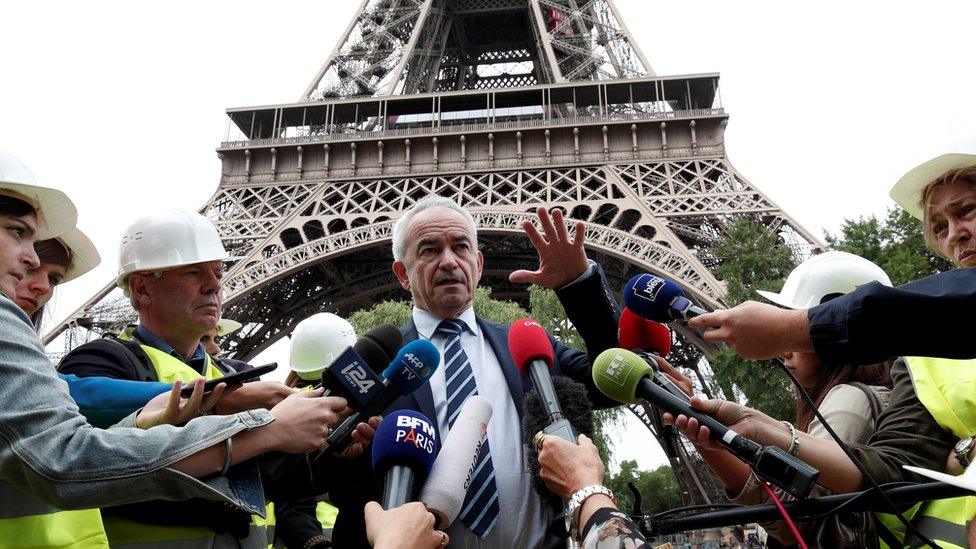
Bernard Gaudillère, president of the Société d'Exploitation de la Tour Eiffel (SETE), said the walls were "rock solid"
Glass walls measuring 6.5cm (2.5in) thick will form two sides of the square, with the other two blocked off by 3.24m (10.6ft) high metal barriers, exactly one-hundredth the height of the tower.
To prevent vehicle attacks, 420 blocks will be placed in front of the glass walls as an added protection.
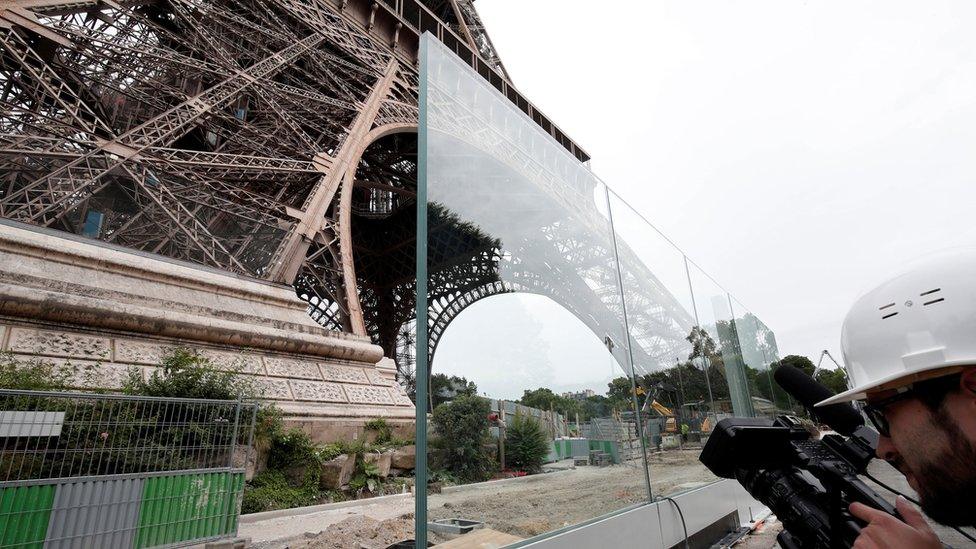
The glass walls are 6.5 cm (2.5 in) thick and will run along two of the four sides of the monument
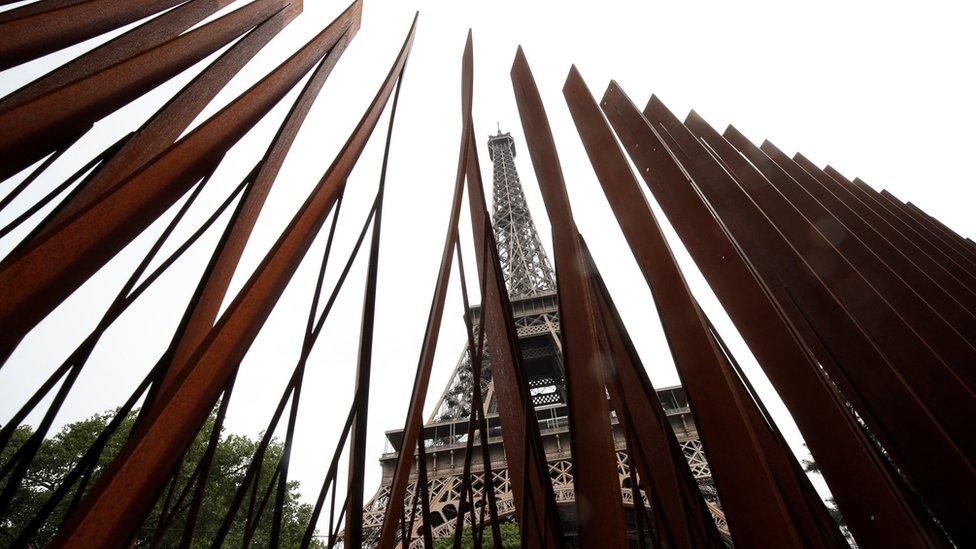
On the other sides, 3.24m (10.6ft) high metal barriers will guard the Tower
The forecourt under the Eiffel tower has been closed to the public since June 2016, with anti-terror troops regularly patrolling the site.
Mr Gaudillère said the temporary walls would be replaced with something "infinitely nicer and more romantic", as part of a €300m renovation of the tower ahead of the 2024 Olympic Games in Paris.
Up to seven million tourists are expected to visit the tower in 2018 alone.
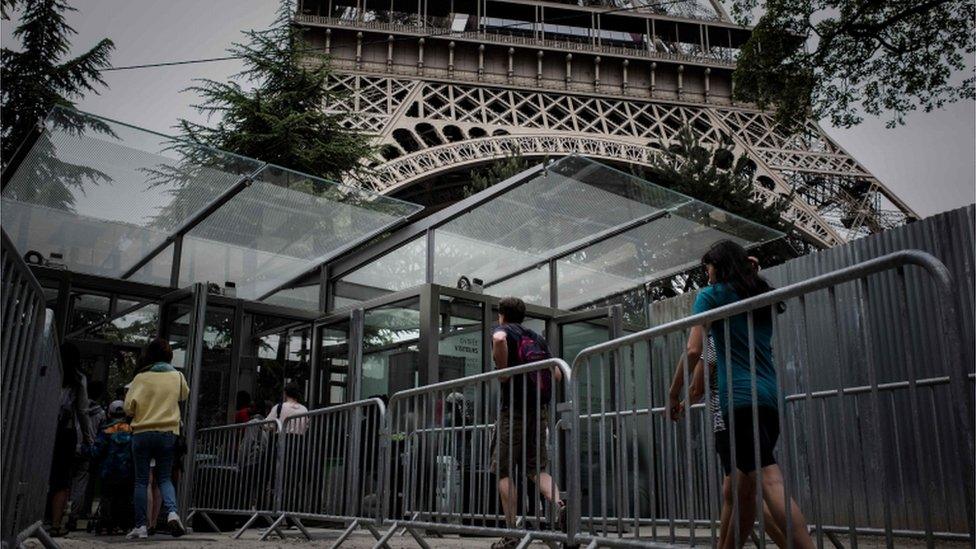
The new entrances for visitors at the Eiffel Tower
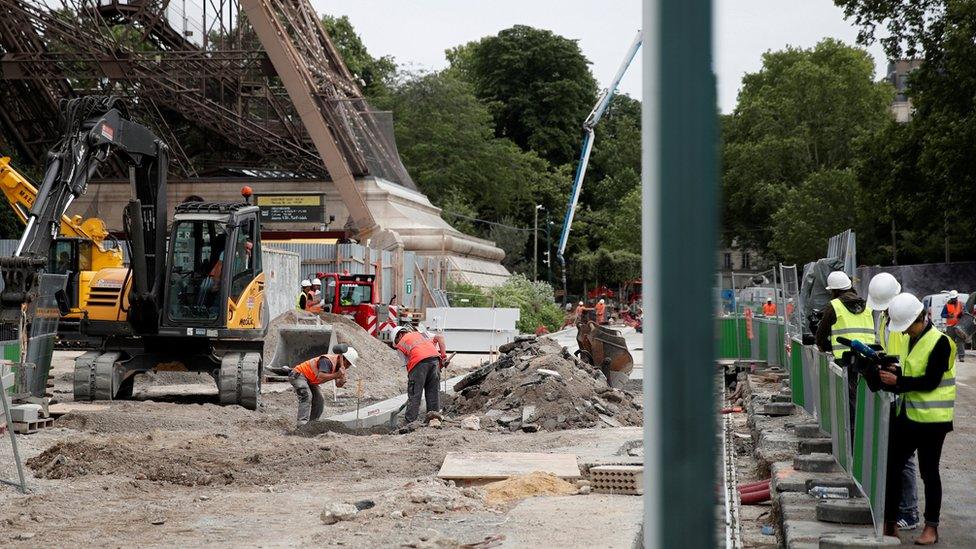
The new measures will be unveiled in July
Yet residents are not happy about the added security features.
A group called Les Amis du Champ de Mars posted a statement online, external in May last year complaining about the lack of consultation with residents, the "exorbitant cost" of the fences, and the difficulty of access for buses and people with disabilities.
They also allege the city used special measures afforded it by the state of emergency to push through the security changes without assessing their impact or the public interest.
The country introduced tough anti-terror laws in October 2017 after almost two years of the national state of emergency imposed by then-President Francois Hollande in the wake of the Paris attacks.
- Published9 February 2017
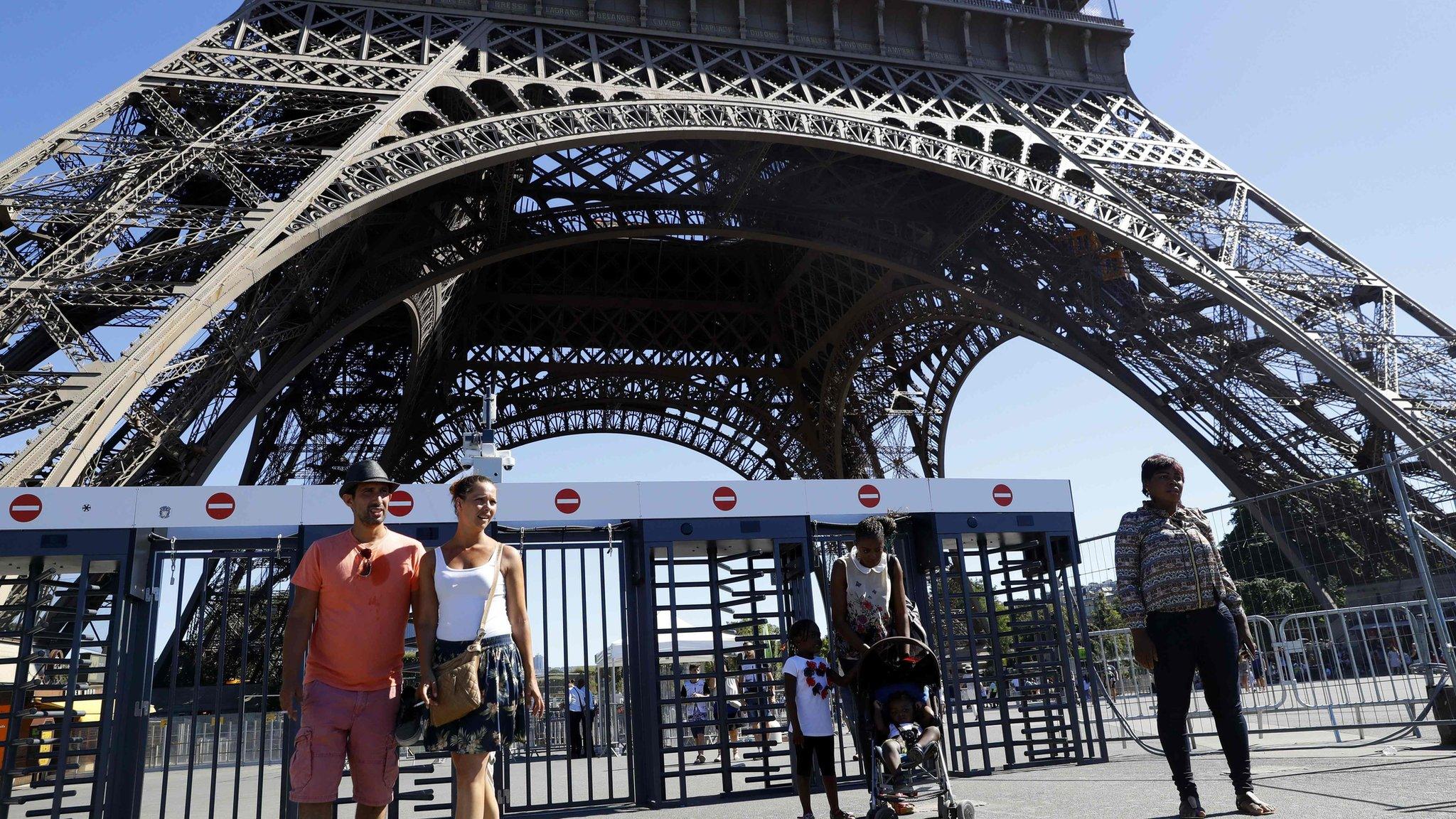
- Published19 November 2015
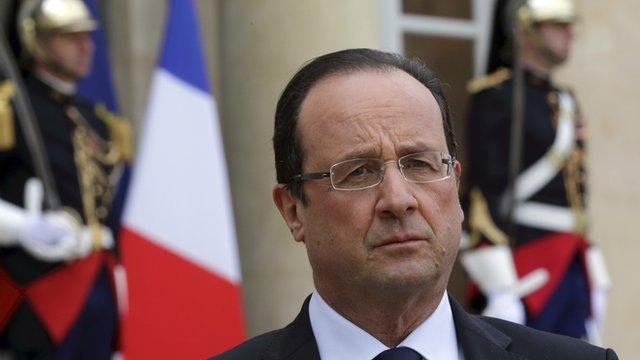
- Published4 October 2017
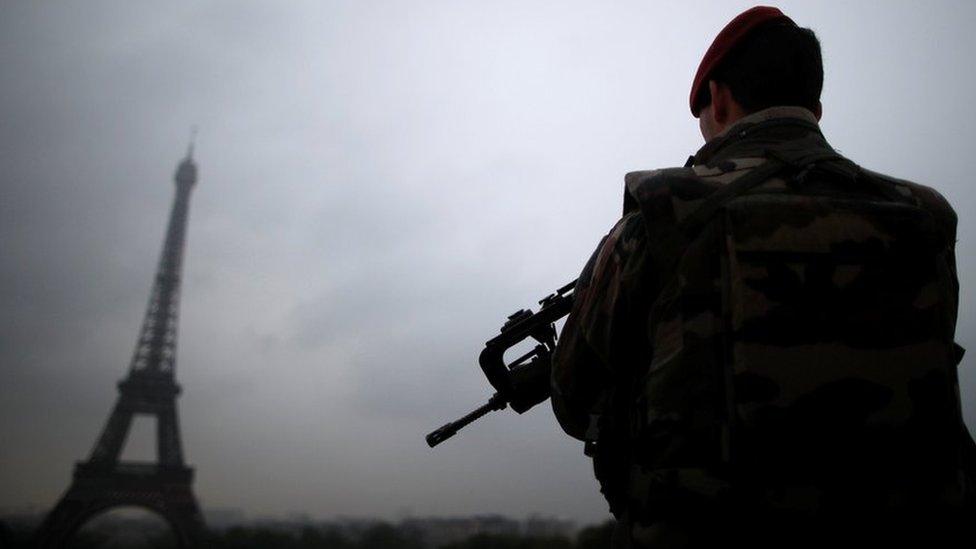
- Published5 February 2015
